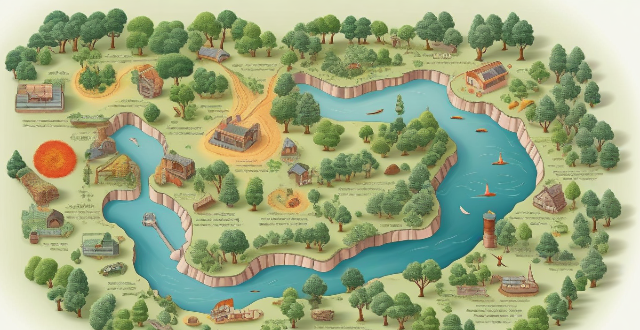The environmental impacts of burning fossil fuels are wide-ranging and severe, affecting not only the natural world but also human health and well-being. These impacts include air pollution, water pollution, land degradation, climate change, and health effects on humans and wildlife. Burning fossil fuels releases sulfur dioxide, nitrogen oxides, carbon monoxide, and particulate matter into the air, causing respiratory problems, smog formation, and lung damage. Water pollution from oil spills and acid mine drainage harms marine life and contaminates water sources. Land degradation from mountaintop removal mining and strip mining destroys habitats and contaminates water sources. Burning fossil fuels also releases large amounts of greenhouse gases like carbon dioxide and methane, contributing to global warming. Health effects include respiratory problems, cardiovascular disease, and cancer. Transitioning away from fossil fuels towards renewable energy sources is essential for mitigating these impacts and ensuring a sustainable future for our planet.

Environmental Impacts of Burning Fossil Fuels
Burning fossil fuels, such as coal, oil, and natural gas, has significant environmental impacts. These impacts include air pollution, water pollution, land degradation, climate change, and health effects on humans and wildlife.
Air Pollution
- Sulfur Dioxide (SO2): Burning fossil fuels releases sulfur dioxide into the atmosphere, which can cause respiratory problems in humans and animals. It also contributes to acid rain, which harms forests and aquatic ecosystems.
- Nitrogen Oxides (NOx): Nitrogen oxides are another byproduct of burning fossil fuels. They contribute to smog formation and can irritate the respiratory system.
- Carbon Monoxide (CO): Carbon monoxide is a toxic gas that can be released when fossil fuels are burned. It can cause headaches, nausea, and even death at high concentrations.
- Particulate Matter (PM): Burning fossil fuels also releases tiny particles into the air, which can cause lung damage and other health problems.
Water Pollution
- Oil Spills: Accidents during the extraction, transportation, or refining of fossil fuels can result in oil spills, which pollute waterways and harm marine life.
- Acid Mine Drainage: Coal mining often involves removing large amounts of earth to access the coal seams. This process can expose sulfide-bearing rocks to oxygen and water, leading to the formation of sulfuric acid, which then drains into nearby water sources.
Land Degradation
- Mountaintop Removal Mining: A form of coal mining that involves removing the tops of mountains to access coal seams underneath. This process destroys habitats and contaminates local water sources with sediment and chemicals used in the mining process.
- Strip Mining: Another method of coal extraction that involves removing the overburing layer of soil and rock, called the overburden, to get to the coal seam below. Like mountaintop removal mining, it destroys habitats and contaminates water sources.
Climate Change
- Greenhouse Gas Emissions: Burning fossil fuels releases large amounts of carbon dioxide (CO2), a greenhouse gas that traps heat in the Earth's atmosphere and contributes to global warming.
- Methane Emissions: Natural gas extraction and transport can result in methane leaks, a potent greenhouse gas that has a shorter atmospheric lifetime but a stronger heat-trapping ability than CO2 over short time periods.
Health Effects
- Respiratory Problems: Air pollution from burning fossil fuels can exacerbate conditions like asthma and lead to new respiratory illnesses.
- Cardiovascular Disease: Fine particulate matter from burning fossil fuels has been linked to heart disease.
- Cancer: Some of the chemicals released when fossil fuels are burned are known carcinogens.
In conclusion, the environmental impacts of burning fossil fuels are wide-ranging and severe. They affect not only the natural world but also human health and well-being. Transitioning away from fossil fuels towards renewable energy sources is essential for mitigating these impacts and ensuring a sustainable future for our planet.